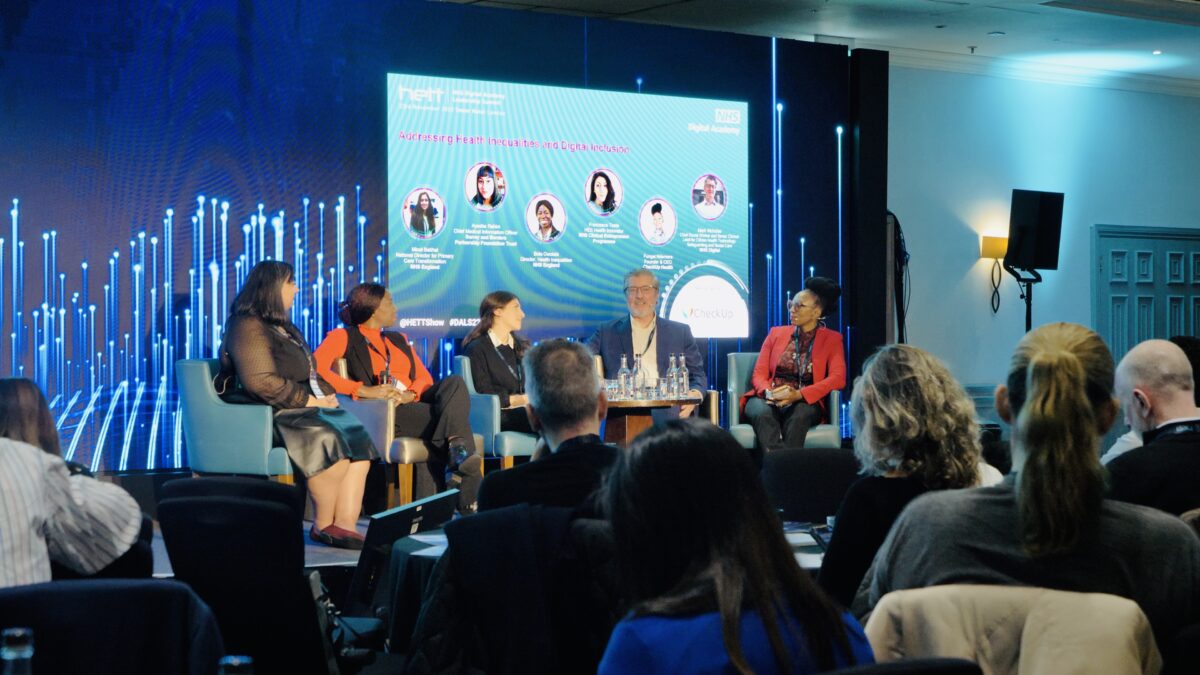How do we realise the potential for digital to be an accelerant and enabler of health inequalities improvement?

Recently I was a panelist in a discussion at the Digital Academy Leadership Summit hosted by NHS Digital Academy in London. It was an absolute pleasure to attend this summit and I’m coming to you today with some key insights from the event.
The topic was “how do we realise the potential for digital to be an accelerant and enabler of health inequalities improvement”. As an observation, it’s difficult to explain health inequalities to anyone who has never experienced them or does not understand why this should be a topic for discussion. My approach was to demonstrate one example of why this complex matter should concern us and make it a priority and part of healthcare delivery digital transformation.
Health inequalities go against the principles of social justice because they are avoidable. Health inequity doesn’t occur randomly or by chance, instead it is socially determined by circumstances largely beyond an individual’s control. These circumstances disadvantage people and limit their options to live longer healthier lives.
Before the pandemic, 66% of adults in the UK had never used the internet or apps to manage their health. Awareness and use of online bookings for GP appointments increased to 48% and 19%, respectively, in 2020 (compared to 44% and 15% in 2019) (GP Patient Survey 2020).
Did you know that 83% of GPs express concerns about patients whose access to remote services may be impacted by digital literacy, disability, language, location, or internet connection (GPonline 2020). This is just one example of this complex issue.
I believe that through digital transformation, working collaboratively through patient engagement, we can improve user experience and outcomes and make health care equitable and accessible to all.
At CheckUp Health, we seek to meaningfully involve users, tailoring interventions to target groups’ contexts at the design stage and having a transparent logic model of how services using technology improve health, followed by a robust evaluation of their impact on health.
Maximising the potential for digital technology to improve health requires us to address underlying digital exclusion. Otherwise, focusing on technology may inadvertently lead to the unintended consequences of widening health inequalities.
Thank you to Minal Bakhai, who chaired my co-panelists Ayesha Rahim, MRCGP, Dr. Francesca Testa, Mark Nicholas MBA, MSW, CQSW
In conclusion, addressing health inequalities requires a collaborative approach and commitment. How can we all move forward and make these collaborations work together.